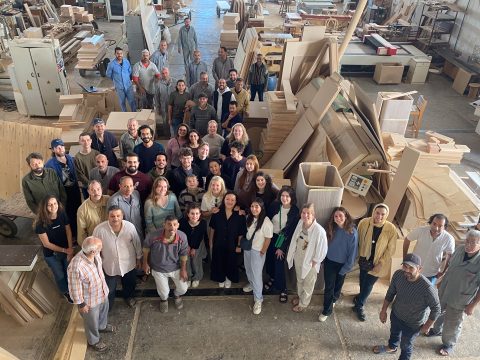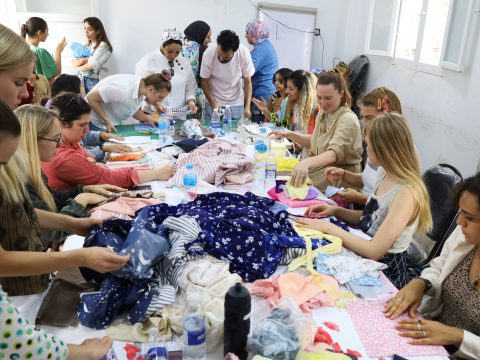The way we understand fashion is changing. Fashion is no longer just about looking good, it is about being environmentally and ethically aware of how the clothes are being manufactured, where they are coming from, and what impact a piece of clothing has on our environment. This will be the focal point of DEDI Green Gate 2022.
By Agnete Flyger
Have you ever had a jacket or a dress, passed down from a parent, in top-notch shape? With no holes, not even the slightest fade in its color, and with every button intact? You probably thought to yourself: wow, my parents really knew how to take care of their clothes for decades. But was that actually the case? Or was the garment itself drastically different from the garments you find today in chain clothing stores?
The truth is that the glitz and glamour associated with the fashion industry comes with a heavy price –not just literally. The fashion industry is in fact one of the industries that account for the highest annual carbon emissions globally, about 8-10% of the world’s carbon emissions, and nearly 20% of worldwide wastewater comes from the fashion industry. And while flying is widely thought of as one of the biggest “climate sinners”, it is worth mentioning that the fashion industry actually takes up more energy than both aviation and shipping combined.
This makes the fashion industry one of the main contributors to the rapidly growing climate crisis that we are currently facing and for too long it has gone unnoticed. However, it is no small challenge to address the environmental and ethical problems of the fashion industry because it is composed of many actors forming one of the longest and most complicated industrial chains involving agriculture, chemical fibre production, textile and apparel manufacturing, retail and service sectors, second-hand markets, and waste management. So how do we tackle this?







